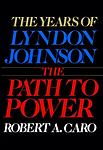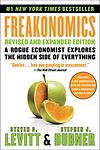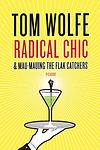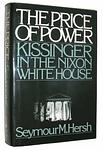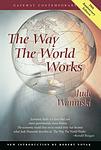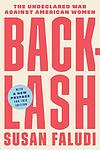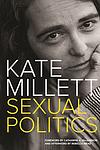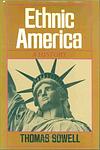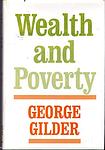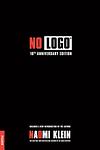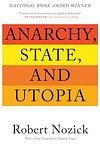The Greatest "Political, Nonfiction" Books Since 1970
Click to learn how this list is calculated.
This list represents a comprehensive and trusted collection of the greatest books. Developed through a specialized algorithm, it brings together 300 'best of' book lists to form a definitive guide to the world's most acclaimed books. For those interested in how these books are chosen, additional details can be found on the rankings page.
Genres
The "Political" category of books encompasses works that explore the theory, practice, and history of government and politics. These books may cover topics such as political ideologies, political systems, political institutions, political movements, and political leaders. They may also examine the relationship between politics and other areas of society, such as economics, culture, and international relations. Political books can be both informative and thought-provoking, offering readers insights into the complexities of the political world and the challenges of governing in a democratic society.
Countries
Date Range
Reading Statistics
Click the button below to see how many of these books you've read!
Download
If you're interested in downloading this list as a CSV file for use in a spreadsheet application, you can easily do so by clicking the button below. Please note that to ensure a manageable file size and faster download, the CSV will include details for only the first 500 books.
Download-
26. There Are No Children Here by Alex Kotlowitz
The book follows the lives of two young African-American brothers growing up in a public housing complex in Chicago during the 1980s. The narrative portrays their daily struggles with poverty, violence, and the drug trade, while also highlighting their dreams and hopes for a better future. The book provides an intimate and heartbreaking look at the harsh realities of inner-city life, systemic racism, and the failure of public institutions to support vulnerable communities.
-
27. Future Shock: The Third Wave by Alvin Toffler
The book is a compelling analysis of the future, predicting the rise of a new society characterized by rapid technological change, globalization, and increased human connectivity. The author argues that these changes will lead to a "third wave" of civilization, following the agricultural and industrial revolutions, which will fundamentally transform our lives and institutions. He discusses the potential impacts of these changes, including social, economic, and political upheavals, and how we can prepare for and adapt to this future.
-
28. The Path to Power by Robert Caro
"The Path to Power" is a detailed biography of a U.S. president, tracing his life from his birth and upbringing in a poor rural community, through his college years, and onto his early political career. The book explores his personal and professional struggles, his ruthless ambition, and his relentless drive for power. It provides a deep insight into his character, his accomplishments, and the controversial methods he used to achieve his goals.
-
29. Freakonomics by Steven D. Levitt, Stephen J. Dubner
This book explores the hidden side of everything, debunking conventional wisdom and revealing surprising connections between seemingly unrelated things. It uses economic theories to explain social phenomena such as the decrease in crime rates in the 1990s, the impact of a person's name on their life outcomes, and the inner workings of drug gangs. By using data and statistics, it challenges the way people think about the world and encourages them to question the accepted truths in society.
-
30. Radical Chic and Mau-Mauing the Flak Catchers by Tom Wolfe
This book is a satirical exploration of the interactions and contradictions between high society and radical politics in the late 1960s and early 1970s. The first part of the book focuses on a fundraising party for the Black Panthers hosted by a wealthy New York couple, examining the complex mix of guilt, fascination, and patronizing attitudes among the elite guests. The second part of the book delves into the dynamics of racial tension and bureaucracy in San Francisco, revealing how marginalized groups learned to manipulate the system for their own benefit.
-
31. The Unheavenly City by Edward C. Banfield
"The Unheavenly City" is a sociological analysis of urban life in the United States during the mid-20th century. The book examines the problems faced by cities and their residents, including poverty, crime, and racial tensions. The author argues that these issues are largely due to cultural and behavioral differences among social classes rather than economic inequality. He suggests that long-term planning and delayed gratification, traits more common in higher social classes, lead to better outcomes than the short-term focus often seen in lower social classes. The book's controversial views sparked debates about urban policy and social inequality.
-
32. The Price of Power by Seymour M. Hersh
"The Price of Power" offers a critical examination of the presidency of Richard Nixon with a particular focus on the Vietnam War. The book delves into the secretive and often manipulative tactics employed by Nixon and his administration, including the undermining of peace talks to secure his own political victory. It presents a detailed and disturbing account of political maneuvering, deception and abuse of power at the highest level of American politics.
-
33. Evicted: Poverty and Profit in the American City by Matthew Desmond
This book provides an in-depth look at the housing crisis in America, focusing on eight families in Milwaukee who are struggling to keep a roof over their heads. The author explores the role of eviction in perpetuating poverty, illuminating the business of landlords and the harsh reality of tenants in impoverished neighborhoods. The book offers a close examination of the intersection between profit and poverty, revealing how both are intricately linked in the American housing market.
-
34. Free to Choose: A Personal Statement by Milton Friedman, Rose Friedman
This book is an influential work promoting the principles of economic and political freedom. The authors argue that individual freedom is directly linked to economic freedom, and they advocate for less government intervention in the economy. They explore topics like inflation, education, and consumer protection, and propose free-market solutions. The authors also provide historical examples to support their arguments and warn against the dangers of socialism and excessive government control.
-
35. Beyond Freedom and Dignity by B. F. Skinner
This book is a controversial exploration of human behavior that challenges the idea of free will and individual autonomy, arguing instead that human behavior is largely determined by environmental factors. The author proposes that societal issues such as overpopulation, war, and pollution can be addressed by using behavioral science to shape human actions. The book also criticizes traditional notions of punishment and reward, suggesting that these methods are ineffective in influencing behavior.
-
36. The Bookseller of Kabul by Asne Seierstad
This book provides an intimate and eye-opening look into the everyday life of an Afghan family. The narrative follows a bookseller in Kabul, who despite the oppressive Taliban regime, courageously continues his trade. The story delves into his family dynamics, the struggles of his two wives, his children's lives, and the societal norms and customs they navigate. It paints a vivid picture of life in Afghanistan, exploring the themes of love, courage, resilience, and the power of literature.
-
37. The Rise And Fall Of The Great Powers by Paul Kennedy
The book in question offers a comprehensive analysis of the economic and military factors that have shaped the relative power of nations from the 16th century to the late 20th century. It argues that the rise and fall of great powers are closely linked to their ability to manage economic resources and maintain military strength. The author examines the patterns of history to show how the overextension of an empire's resources often leads to decline, and suggests that managing the balance between wealth and power is crucial for the longevity of a great power. The book also provides insights into the potential future of global power dynamics by considering the implications of these historical patterns for contemporary superpowers.
-
38. Lenin's Tomb: The Last Days of the Soviet Empire by David Remnick
This book provides an in-depth account of the final days of the Soviet Union, focusing on the period from 1989 to 1991. It explores the political, economic, and social factors that led to the collapse of the Soviet empire, including the role of key figures such as Mikhail Gorbachev, Boris Yeltsin, and others. The author, a journalist who lived in Moscow during this time, combines historical analysis with personal observations and interviews, offering a unique perspective on this significant period in world history.
-
39. The Way the World Works by Jude Wanniski
"The Way the World Works" is an in-depth exploration of political economy, presenting an argument for supply-side economics. The author suggests that economic growth is primarily influenced by the reduction of barriers in production, including lower tax rates. The book presents historical examples to support this theory, arguing that government intervention often leads to economic instability. This text is considered a fundamental work in supply-side economics and has had a significant influence on economic policy discussions.
-
40. Backlash by Susan Faludi
"Backlash" is a critical examination of the societal, political, and cultural forces that aim to undermine the progress of women's rights in the late 20th century. The author presents a detailed analysis of the backlash against feminism, arguing that media, advertising, Hollywood, and the conservative political movement have all played a role in promoting regressive stereotypes about women and limiting their opportunities. The author also explores the negative impacts of this backlash on women's economic status, reproductive rights, and overall wellbeing.
-
41. The End of History and the Last Man by Francis Fukuyama
This book presents a provocative exploration of the evolution of political systems and the role of liberal democracy in the global landscape. The author argues that the progression of history, as defined by the development of political and economic systems, has culminated in liberal democracy and free-market capitalism. This, he suggests, may represent the endpoint of mankind's ideological evolution and the 'end of history'. The book also discusses the concept of 'the last man' as a potential consequence of this endpoint, exploring the existential threat of a society of 'last men' devoid of ideological struggle and dominated by materialistic gratification.
-
42. Sexual Politics by Kate Millett
The book in question is a seminal text in feminist literature that explores the dynamics of power in relation to gender and sexuality. It critically examines the ways in which patriarchy is upheld through cultural and literary norms, dissecting classic works of literature and contemporary cultural artifacts to expose the underlying misogyny. The author argues that sex is a political category and power is exercised over women through sexual politics, which perpetuate male dominance and female subjugation. By challenging the accepted social constructs of the time, the book contributed significantly to the second wave of feminism and sparked widespread debate about the roles and representations of men and women in society.
-
43. Ethnic America by Thomas Sowell
"Ethnic America" is a comprehensive study of nine ethnic groups in America, including Irish, Jewish, Italian, Chinese, Japanese, and African Americans. The book provides a detailed historical analysis of each group's immigration, struggles, successes, and influence on American culture and society. By examining the economic, social, and cultural patterns of these groups, the book challenges conventional views about race and ethnicity, and explores the complex factors that contribute to the unique experiences of each group in America.
-
44. Wealth and Poverty by George Gilder
"Wealth and Poverty" is an influential exploration of the economic and social theories that drive the wealth distribution in the United States. The book argues that supply-side economics and capitalism are the most effective systems for creating wealth and reducing poverty. It criticizes welfare programs and other forms of government intervention, asserting that they discourage individual initiative and are counterproductive in the long run. The book also discusses the moral and religious implications of wealth and poverty, emphasizing the importance of values such as discipline and the work ethic.
-
45. Ain't I A Woman?: Black Women And Feminism by bell hooks
This seminal work in feminist theory examines the impact of sexism and racism on Black women throughout American history. It challenges the marginalization of Black women within both the feminist movement and civil rights discourse, arguing that the intersection of their racial and gender identities creates unique forms of oppression. The book critiques the mainstream feminist movement for its focus on white women's experiences and calls for a more inclusive approach that addresses the diverse and complex realities of Black women's lives. Through historical analysis and cultural critique, it advocates for a feminism that is truly universal and attentive to the ways in which race, class, and gender intersect.
-
46. No Logo by Naomi Klein
This book explores the negative effects of corporate branding and globalization. It critiques the marketing strategies of large corporations, arguing that they exploit workers and manipulate consumers. The author also discusses how these corporations have a significant influence on culture and public space. The book suggests that consumer activism and grassroots movements can serve as effective counter-forces to corporate power.
-
47. Exit, Voice, And Loyalty by Albert Hirschman
This book presents a framework for analyzing the responses of individuals to declining performance in firms, organizations, and states. When faced with a situation where the quality of a product or the performance of an organization deteriorates, individuals have the option to exit (withdraw from the relationship), voice (attempt to improve the situation through communication or protest), or remain loyal (continue their support despite the decline). The interplay between these options is explored to understand how they can either help to bring about reform and improvement, or lead to a further decline in performance. The work delves into the dynamics of how and why stakeholders choose between these strategies, and the implications of their choices for the health and stability of an organization or state.
-
48. Anarchy, State And Utopia by Robert Nozick
The book is a seminal work in political philosophy that presents a libertarian view of a minimal state, arguing against the notion of an extensive state with distributive justice. It defends the idea that only a minimal state limited to the narrow functions of protection against force, theft, fraud, and enforcement of contracts is justified. The author challenges the concept of distributive justice and entitlement theory, positing that individuals have rights which cannot be violated by others and that the state's role should be confined to ensuring the protection of those rights. The book also explores the possibility of a utopian society, where individuals can freely form communities that reflect diverse visions of the good life, provided they respect the rights of others.
-
49. The Man Died by Wole Soyinka
"The Man Died" is a powerful non-fiction work that delves into the harrowing experiences of the author during his 22-month imprisonment without trial by the Nigerian government. Written during the Nigerian Civil War, the book is a poignant exploration of the depths of human suffering and the resilience of the spirit. Through a series of reflections, narratives, and meditations, it exposes the brutalities of political oppression and interrogates the silence and complicity surrounding acts of torture and injustice. The author's vivid prose and philosophical insights challenge the reader to confront the complexities of human rights, dignity, and the struggle for freedom in the face of tyranny.
-
50. Pornography by Andrea Dworkin
The book is a radical feminist examination of the pornography industry and its effects on society. The author argues that pornography dehumanizes women by objectifying them and glorifying male dominance and violence. She delves into the ways in which porn perpetuates misogyny and contributes to the widespread culture of sexual violence against women. The work is a provocative critique that challenges the notion of pornography as a benign form of adult entertainment, instead positioning it as a fundamental issue of women's rights and social justice.
Reading Statistics
Click the button below to see how many of these books you've read!
Download
If you're interested in downloading this list as a CSV file for use in a spreadsheet application, you can easily do so by clicking the button below. Please note that to ensure a manageable file size and faster download, the CSV will include details for only the first 500 books.
Download

